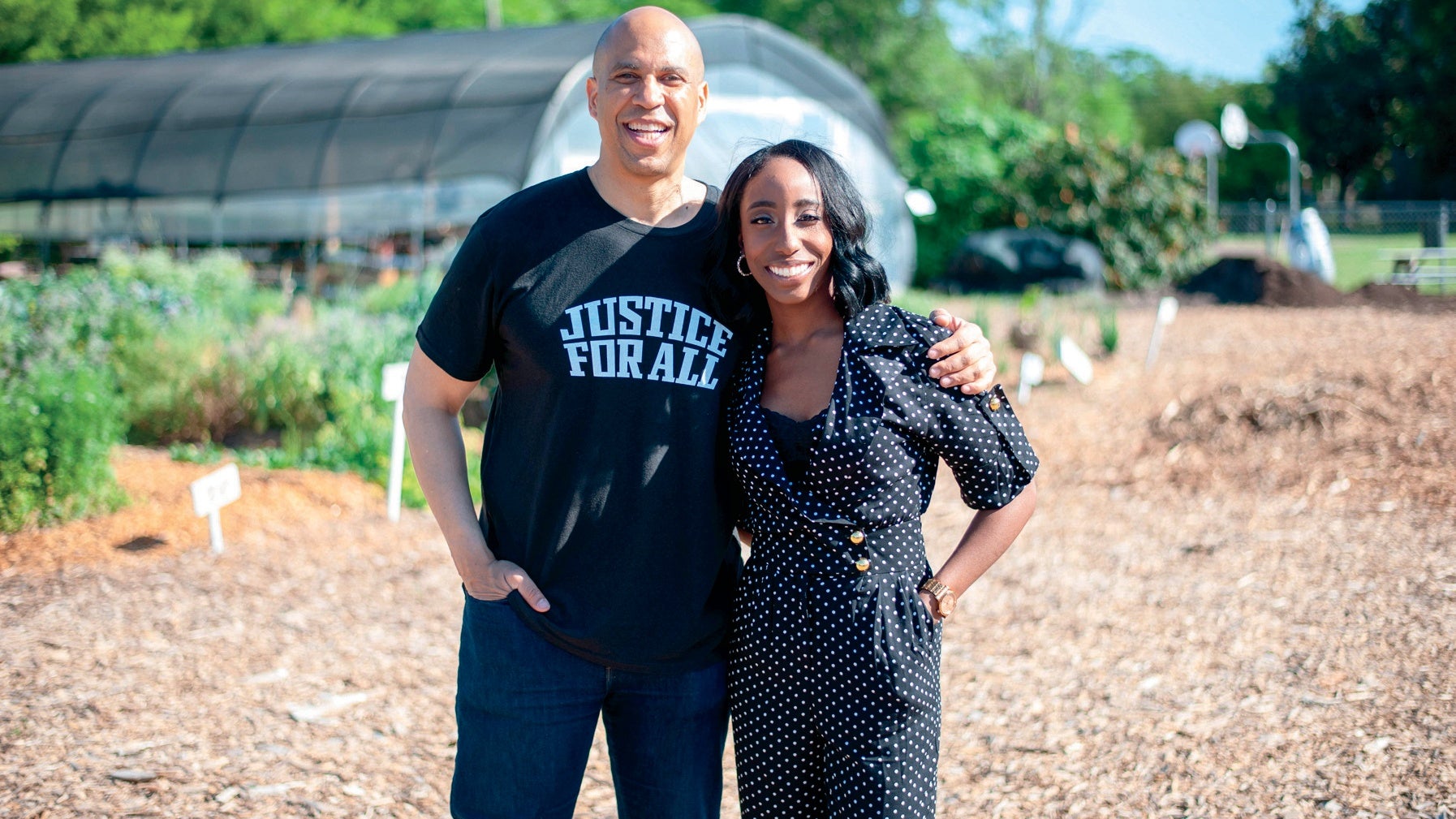
On November 3, 2020, the people of the United States will head to the polls to elect the next president. Some will no doubt vote to keep Donald Trump in office. Others will use their vote in an attempt to change the course of American politics.
Over the past year we’ve seen many Democratic candidates enter and leave the race. At one point there were 29 people vying for the nation’s highest office. As part of our election coverage, we followed four of them on the campaign trail. 24 Hours With is the first ESSENCE.com video series of its kind. It documents an average day in the life of a presidential candidate.
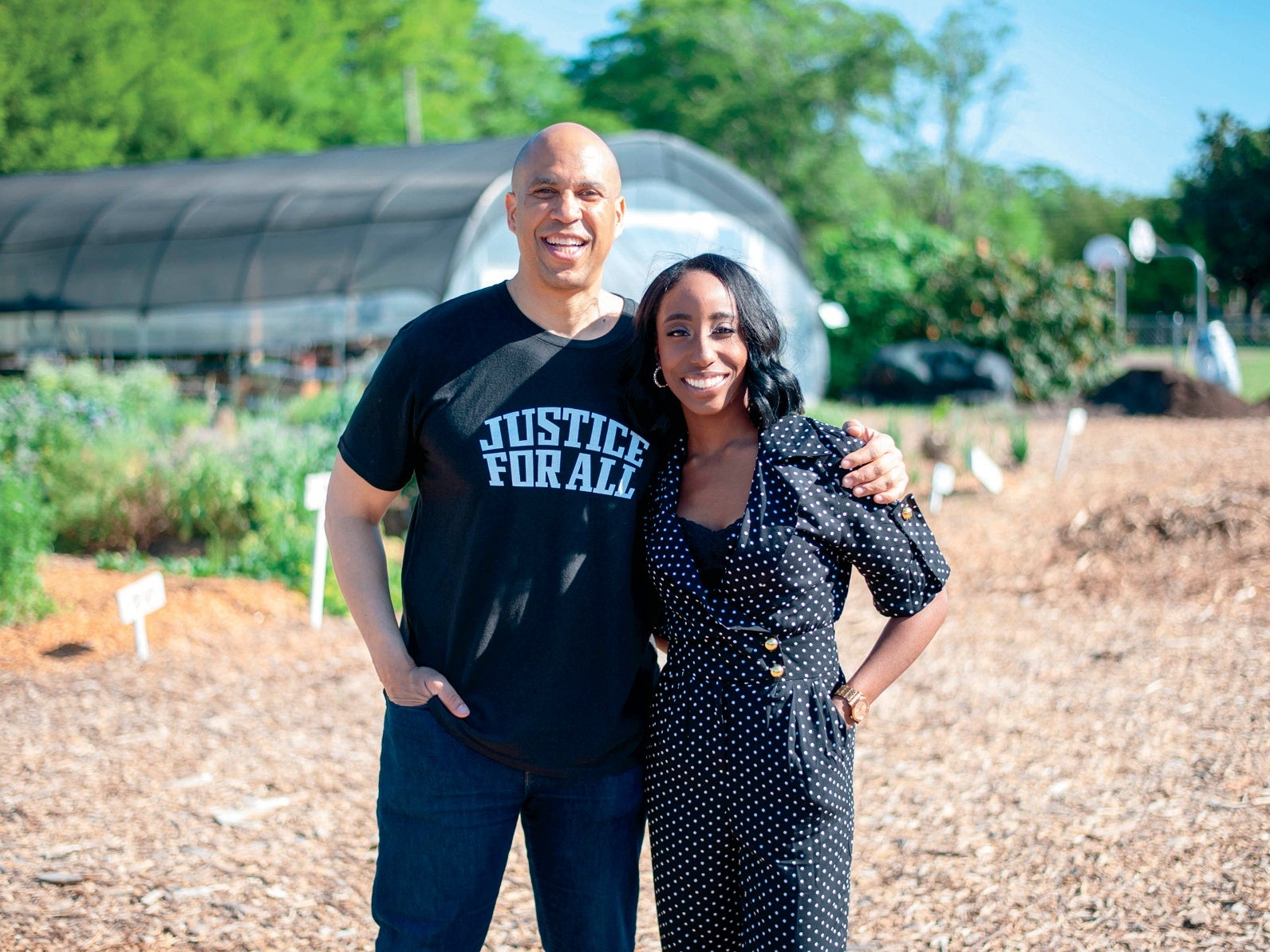
The series is groundbreaking, as it marks the first time that a media outlet whose sole focus is Black women has been given such access to presidential candidates during their campaign. Our inaugural episode featured New Jersey senator Cory Booker as he canvassed South Carolina in September.
ESSENCE News & Politics editor Tanya A. Christian followed Booker and his team as he met with South Carolinians. During his stop at Whale Branch Middle School in Seabrook, South Carolina, Booker spoke about his plans to ensure teachers a living wage.
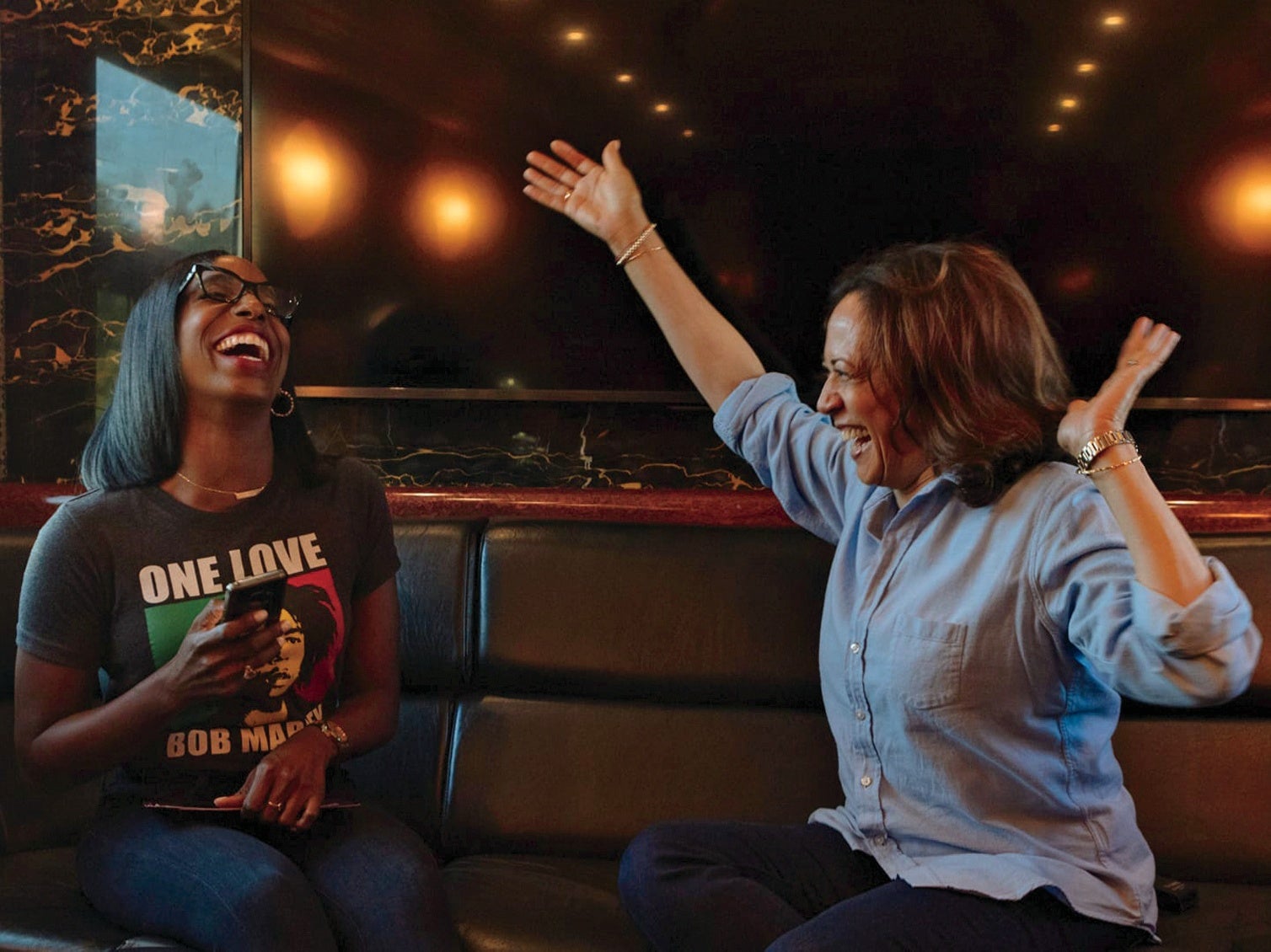
“We will raise teachers’ salaries,” he said. “We’re going to forgive their debts. People who are going into pro- fessions like teaching should not have college debt. And the way we raise their salaries is by using a kind of tax incentives. Right now we have people who work in hedge funds who pay less of a percentage of their salaries and taxes, and teachers work hard in the classrooms.”
I reject the notion that if you try to fix the system from the inside, then it means you are somehow suspect.”
—KAMALA HARRIS,
FORMER PRESIDENTIAL CANDIDATE
Unfortunately, several months after our episode featuring Booker aired, he suspended his campaign, citing a lack of financial resources. As the nation wondered how many other candidates would drop out before the major pri- maries, we remained vigilant with our coverage. On the heels of traveling with Booker, our intrepid reporter Christian hopped on the bus of one of the few Black women ever to run for president, Kamala Harris. Christian joined Team Harris during a stop in Iowa, where she made appearances at the state fair.
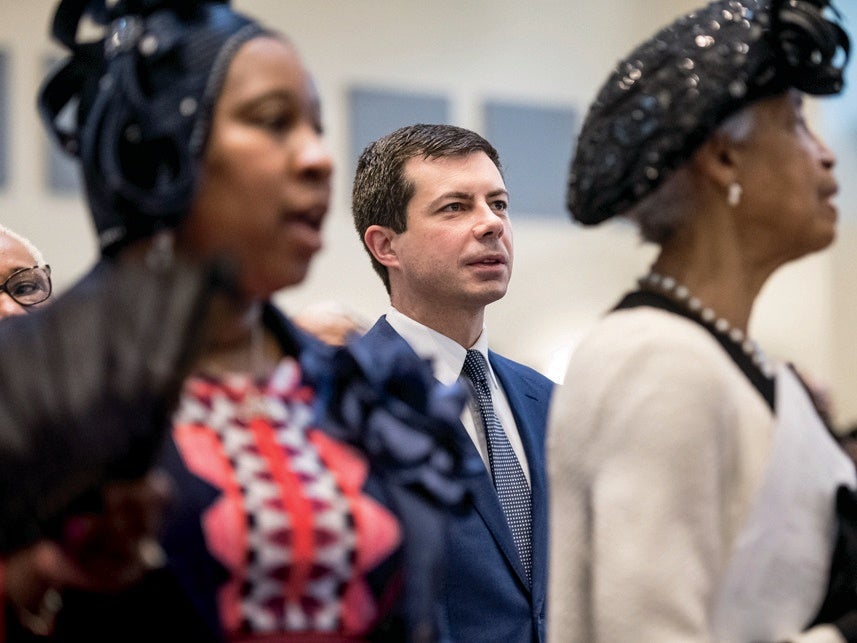
Although many took issue with Harris’s prosecutorial background, she remained collected when addressing issues such as gun control and how she regularly interacted with the mothers of people who lost their lives when she was a district attorney. “Women would come to my office, when I was DA, and demand that they only talk to me,” she said.
“They only wanted to talk to me.” Harris did not try to deflect when Christian questioned her about her previous career. Indeed, she shared that she’s proud of the work she did as the former attorney general of California. “I reject the notion that if you try to fix the system from the inside, then it means you are somehow suspect,” Harris remarked.
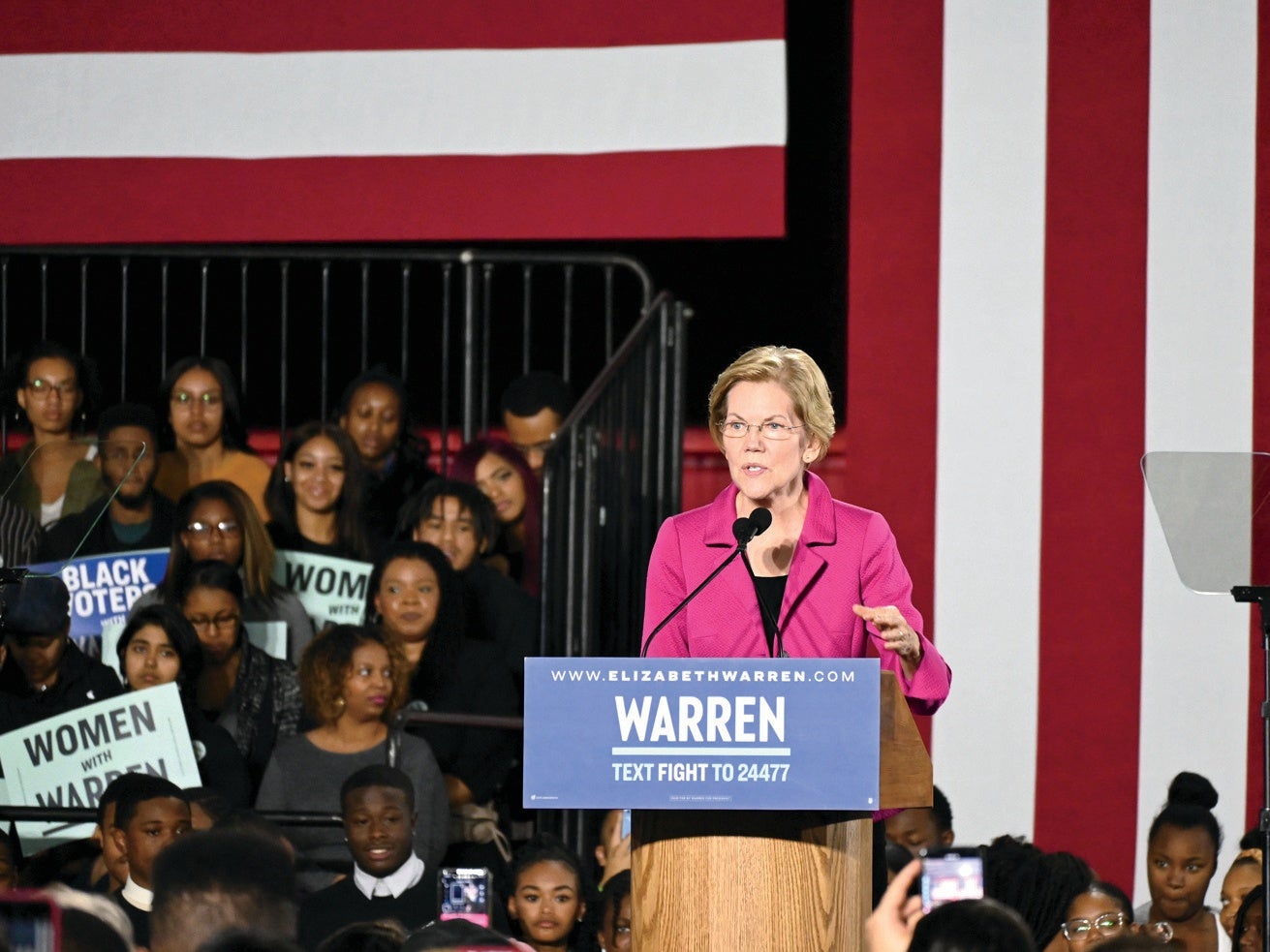
Alas, the U.S. will not get a chance to elect its first Black, female president this year; on December 3, 2019, Harris ended her campaign. “To my supporters, it is with deep regret—but also with deep gratitude—that I am suspending my campaign today,” Harris stated. “But I want to be clear with you. I will keep fighting every day for what this campaign has been about: justice for the people. All the people.”
Over the next several months, Democratic competitors continued to exit the race—from relative unknowns, like Governor Steve Bullock of Montana and former Colorado governor John Hickenlooper, Jr., to more universally known candidates, like Julián Castro and the popular Andrew Yang. The herd was definitely thinning.
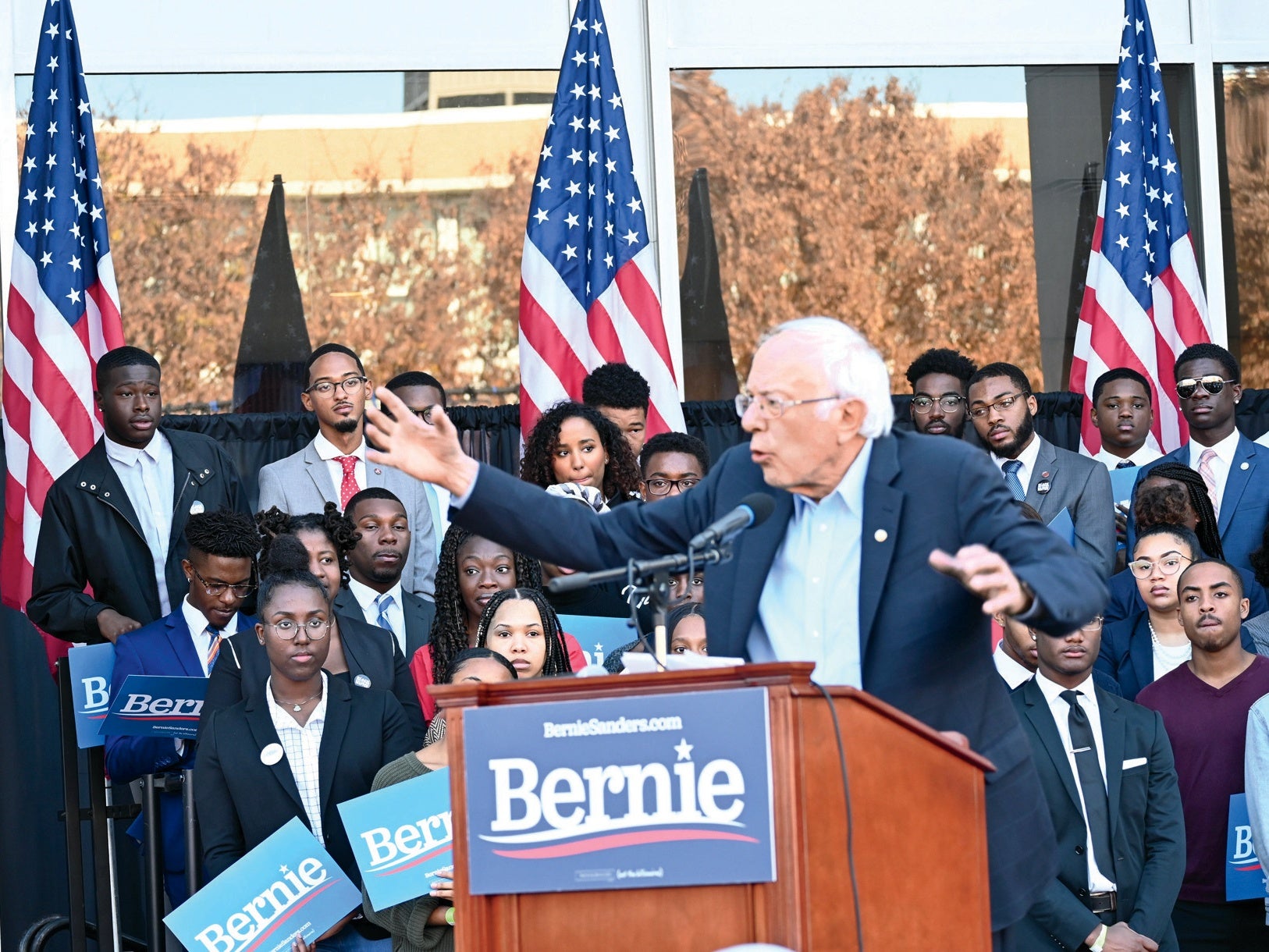
As the remaining candidates ramped up their campaigns, many peo- ple tuned in for the Democratic debate held in Atlanta last November. The next day, Sen. Bernie Sanders (I-VT) made a stop at Morehouse College to speak about the importance of HBCUs. In an interview with ESSENCE, Sanders observed, “There is no question that we do not have enough African-American professionals.
We need more African- American doctors, nurses, social work- ers, psychiatrists, teachers—and to a very significant degree, the HBCUs are providing that. It is no great secret that a lot of HBCUs are struggling today, and we are going to provide the kind of support that they need.”
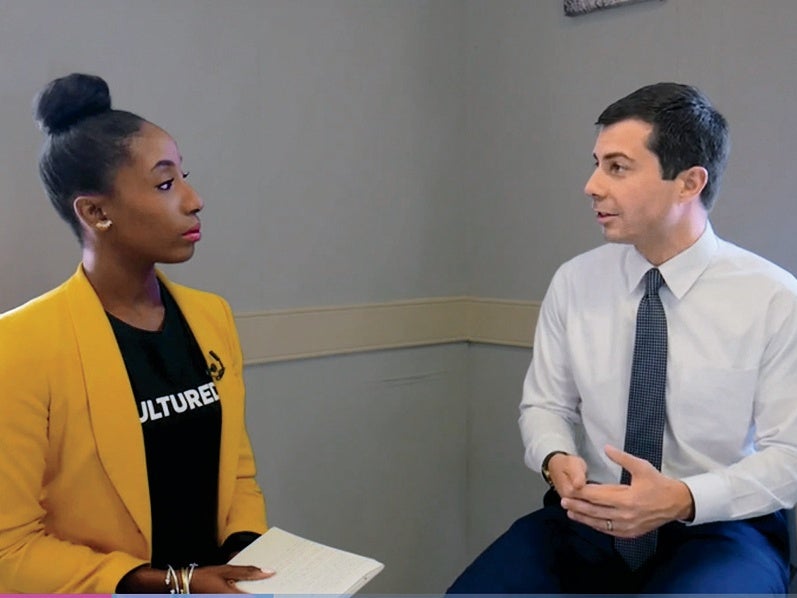
Throughout the campaign, former South Bend, Indiana, mayor Pete Buttigieg has been surrounded by con- troversy. Some say the mayor didn’t serve his Black constituents well. But he made it past the New Hampshire primary and mounted a major chal- lenge to Bernie Sanders and Joe Biden. With his poll numbers rising, Buttigieg counted himself as a contender for the Democrat nomination.
At the start of his campaign, Buttigieg did his best to appeal to Black voters when he unveiled his Walker-Lewis plan, which would help bridge the racial wealth gap by supporting initiatives in the Black community. Buttigieg didn’t stop there: His Douglass Plan, named for social reformer Frederick Douglass, was touted as a comprehensive invest- ment in the Black community.
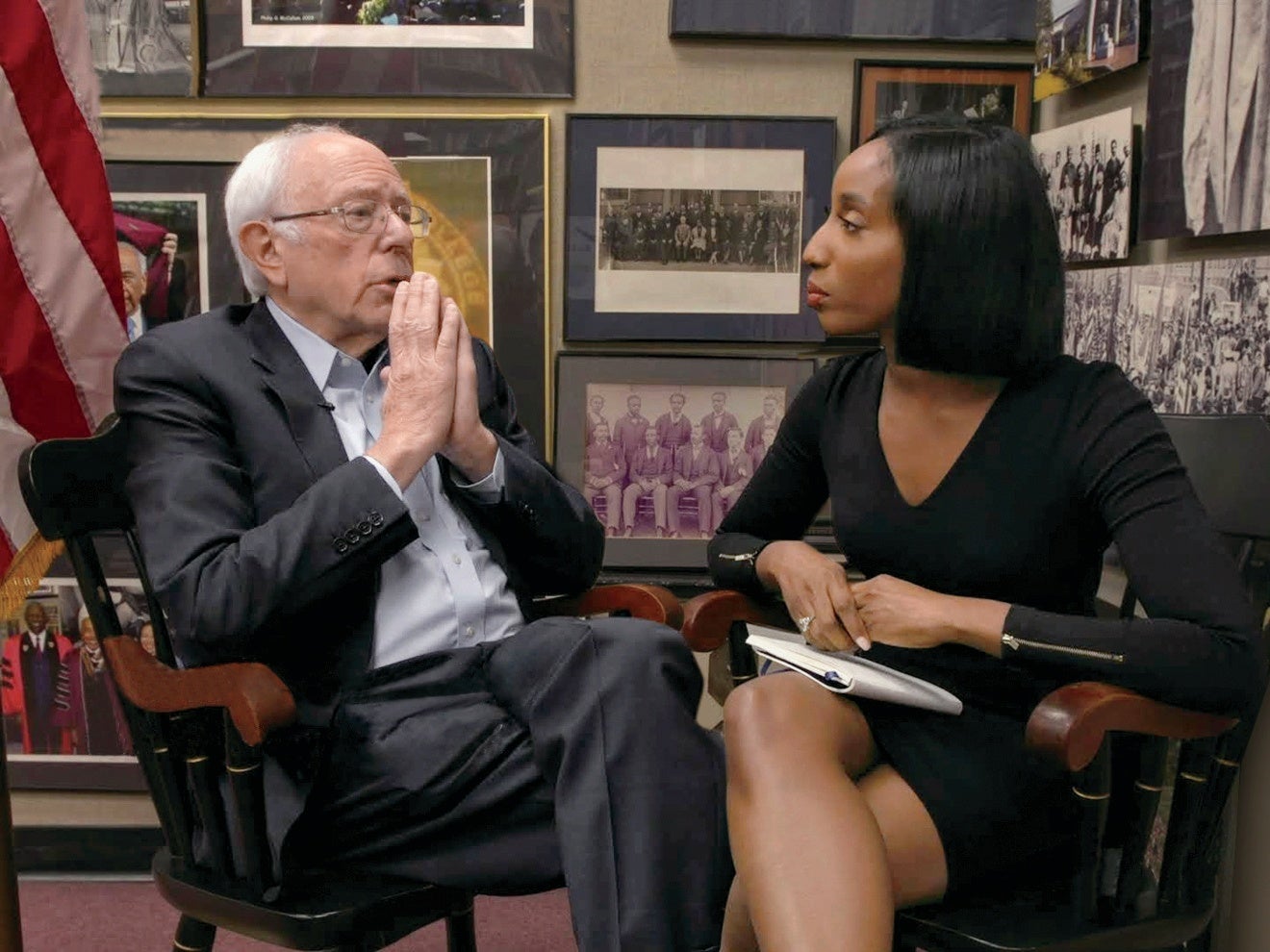
When Christian joined Buttigieg on the road in South Carolina, he explained why he was so focused on Black voters, primar- ily Black women: “It’s for reasons of sex- ism, racial inequality and other structural problems—all of which, by the way, came about on purpose,” he noted. “It won’t be taken apart unless we do it on purpose.”
Just a day after Joe Biden won the South Carolina primary in February, Buttigieg, too, suspended his cam- paign. “Today is a moment of truth,” he stated in his official announcement. “…The truth is that the path has nar- rowed to a close for our candidacy, if not for our cause. We must recognize that at this point in the race, the best way to keep faith with those goals and ideals is to step aside and help bring our party and country together.”
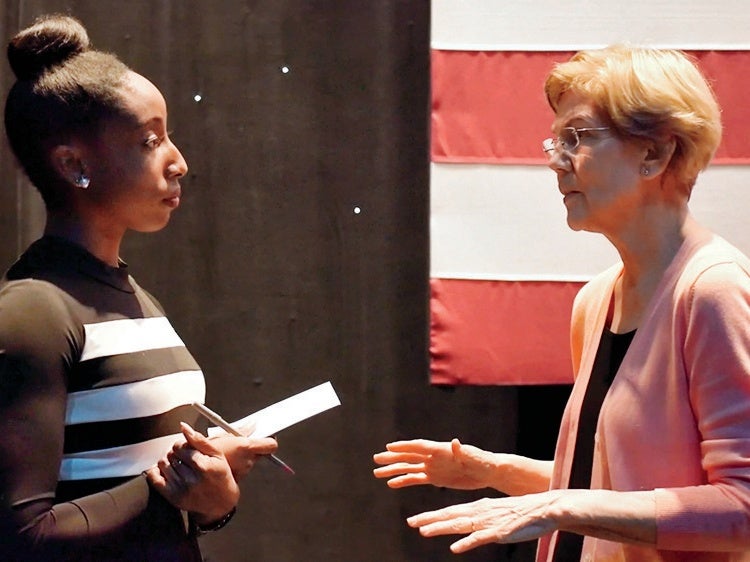
During the South Carolina primary events, Elizabeth Warren also made a point of explaining why she feels race is a critical issue in the U.S., one that intersects with numerous other issues. “You know, a lot of folks run for office, and they go to the Black community and they say, ‘Oh, we’ll talk about race,’ and they’ve got one or two talking points,” she said.
“No, that’s not how it really works in America. I don’t have to tell you race cuts through everything. And so the way I approach this is, every plan I put out, I stop and ask peo- ple, ‘So what’s the racial part of this? How does this affect communities of color differently? How does this affect African-Americans differently, Latinos differently?’”
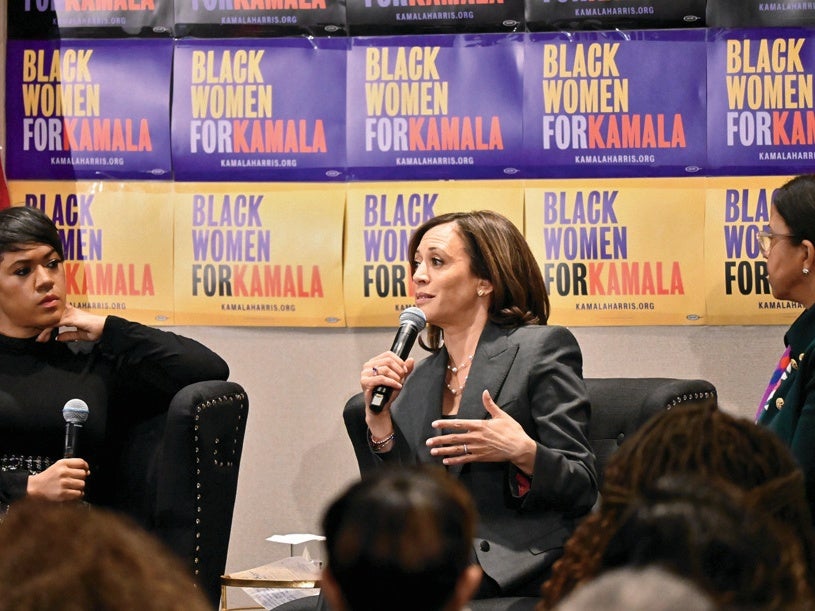
To the disappointment of many, Warren also ended her bid for the presidency shortly after the South Carolina primary, but she encouraged voters to keep on fighting to fix the broken system. As of this writing, the field has narrowed down to Joe Biden and Bernie Sanders. Amid an international out- break of the COVID-19 virus in the spring, the candidates were creatively attempting to appeal to the masses. Who will ultimately secure the Democrat nomination?
And what will be their course of action to defeat the current president? Although Donald Trump has his fair share of supporters, many people are ready for change. As the election season continues, ESSENCE will be there with our cam- eras to capture more of the Demo- cratic candidates on the road. Who knows? Maybe one of them will be the next president.
